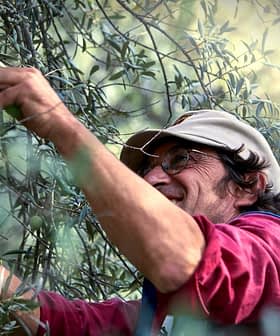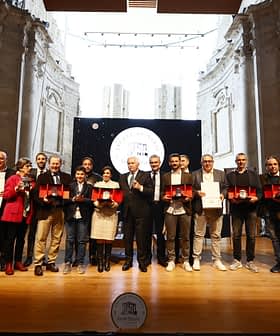Volunteers monitoring small pieces of land in the Italian region of Puglia could become an essential part of the effort to stem the spread of Xylella fastidiosa.
The independent monitoring organization, Info Xylella, has put out a call for volunteers to track the Philaenus spumarius, the insect known for being the primary vector of the deadly plant pathogen.
(The initiative) will increase public involvement and awareness about the need to act urgently, and especially all together, through a community pact to counter the epidemic and defend the economy and landscape of our territory.
Volunteers would monitor pieces of land near which they live. Organizers said the initiative would result in a new level of monitoring and a deeper understanding of the spittlebugs’ habitats and behaviors. The appeal for volunteers comes as the insects steadily approach their adult stage this year.
The so-called “citizen science” initiative will include scientists, agronomists, agri-technical experts, farmers, students and ordinary citizens.
See Also:UK Calls for Spittlebug Spies to Gather Evidence for Xylella Project“Following simple instructions and a video tutorial, they will be able to find the correct location, execute their monitoring operations regularly and send in their photographs and data through Whatsapp or by email,” the appeal read.
All the data will then be analyzed, summarized and published by scientists from Italy’s National Research Council (CNR), the Basile Caramia research center and the regional association, Arptra.
In Puglia, requests for support funds from farmers affected by Xylella fastidiosa have grown 30 percent for the 2018/19 crop year when compared to 2016/17, a sign of the worsening situation for Apulian olive growers who are responsible for more than half of Italian olive oil production.
“This season, [the new monitoring network] will be put to the test,” Info Xylella wrote. “We shall have to verify its potential and vulnerabilities and will use the experience to upgrade the systems and the protocols for the monitoring, communication and analyzing the resulting data. We aim to offer sound new information from this year on.”
One of the goals of the monitoring network is to better identify the best period for taking measures to reduce the spread of the spittlebug.
Other goals include gaining deeper understanding of the spittlebug population’s evolution in Puglia and creating a database that will be used with the climate data to forecast the insect’s development states.
The promoters hope that the initiative “will increase public involvement and awareness about the need to act urgently, and especially all together, through a community pact to counter the epidemic and defend the economy and landscape of our territory.”
The province of Taranto has been the latest in Puglia to be afflicted by the spread of the spittlebug, with several municipalities in the province asking authorities to declare a state of emergency.
See Also:Xylella Fastidiosa UpdatesAccording to the local branch of the farming association Coldiretti, the Xylella fastidiosa infected area has been expanding toward the west of central Puglia, near Avetrana, Manduria, Sava and Maruggio.
Coldiretti said that the monitoring operations conducted last year found 314 new olive trees infected by the pathogen.
“These new infections confirm the spread of the disease in the Taranto area, toward Matera,” Savino Muraglia, president of Coldiretti Puglia, said. “That makes it even more urgent to support local farmers to help them diversify their agricultural activities and build a realistic future.”
In a separate spittlebug monitoring initiative in Spain, officials in Andalusia also asked for volunteers.
The Andalusian Ministry of Agriculture, Livestock, Fisheries and Sustainable Development’s project involves using a mobile application to help monitor for the presence of the spittlebug and other insect vectors of the disease. So far, no sign of Xyella fastidiosa has been found recently.
According to Life Resilience magazine, the mobile app will allow farmers, agricultural experts and the public to gather evidence on the presence of nymphs of several vector insects.
The developers explained that this new version of the application adds a specific area dedicated to monitoring Xylella fastidiosa. The information available includes maps showing where and how many pests and pathogens have infected local crops.
Among the features is the ability to access the data coming directly from more than 200 climate monitoring stations, which the developers said “are strategically placed in the fields and equipped with electronic sensors that provide the necessary information to control pests and diseases.”









